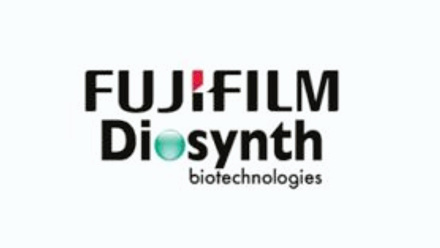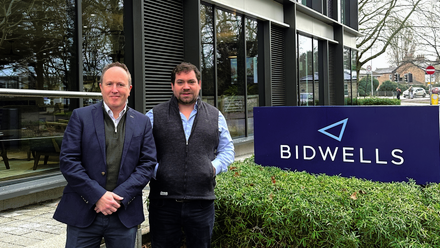CEO Update | 7 February 2022
This week has been one where serious government business was announced, with potentially large impacts on our sector, but hidden by the continued headline spectre of instability around the Prime Minister and a serious political crisis in Northern Ireland.
The resignation of the First Minister in Northern Ireland and the unresolved workings of the Northern Ireland Protocol now put at some jeopardy some of the pragmatic solutions for medicines access that the sector has worked hard on with the Government and the EU. This is something we are following closely and making representations on.
Equally important is whether the UK and EU can agree the deal to expedite the UK's association to the Horizon Europe research programme. Many major European groups are calling for this but it is clear that Whitehall is working on a “Plan B” if a deal cannot be done.
Novavax approval
Against this backdrop, it is great to see another success for COVID-19 vaccine development. Last week, the MHRA approved Novavax’s COVID-19 vaccine, Nuvavoxid, for those over the age of 18. Nuvavoxid is a protein-based vaccine that uses more traditional technology platforms such as those for Shingrix and whooping cough which is being hailed in some quarters as a more enticing option for those who are yet to be vaccinated. Both clinical development and manufacturing for the future for this product benefit from having a significant UK footprint.
The decision to procure Nuvavoxid for the UK was taken in the summer of 2020 as part of the Vaccine Taskforce strategy of having a scientifically balanced vaccine portfolio, with the ultimate aim of giving the UK as many shots on goal as possible to tackle the virus. How the vaccine will be deployed in the UK will be decided by the JCVI shortly. With the European Medicines Agency (EMA) and the MHRA taking slightly different approaches to this approval, it is an interesting case study in regulatory divergence, and one where the EMA's first decisions were ahead of the MHRA by a few weeks - something not much noted in the UK media coverage.
Orchard Therapeutics deal with NHS England
This week the NHS was expected to publish its recovery plan to deal with the backlog of cases due to COVID. It seems to have been delayed by Whitehall machinations. But with less fanfare, NHS England has announced a deal with BIA member Orchard Therapeutics for the adoption of the company’s life-saving gene therapy treatment Libmeldy, a treatment for babies and young children with the rare genetic disease meta chromatic leukodystrophy (MLD), which causes severe damage to the child’s nervous system and organs.
The treatment, which works by replacing the faulty gene that causes MLD, will offer these children the prospect of a normal life. We welcome such innovative deals being struck to the benefit of patients. The BIA recently published a report which explores the merits of introducing an innovative payment model that balances risk and benefits between the NHS and industry, for cell and gene therapies. This report included pay-by-performance and annuity models to ensure that the pipeline of advanced therapies grows and ultimately reaches patients so that they can benefit from these transformative treatments.
This follows last week’s news that the NHS reached an early access agreement with Roche for Atezolizumab and that Immunocore has received FDA approval for KIMMTRAK, the first regulatory approval for a T Cell receptor therapeutic.
UK Early Access to Medicines Scheme Consultation response
Last week the Government published a response to the UK Early Access to Medicines Scheme (EAMS) Consultation. The BIA held a bilateral meeting with the MHRA in December 2021 to discuss the outcome of the consultation. The MHRA received 50 responses, including the BIA’s response. There was broad agreement to introduce the core principles on a statutory basis, reducing the existing administrative burden for EAMS medicines supply and simplifying the requirements for data collection. A statutory instrument will be laid before Parliament in the coming weeks. This will ensure that EAMS remains relevant following the UK’s exit from the EU and that patients in the UK can access cutting-edge therapies in advance of licensing decisions where there is an unmet clinical need.
The discussion also focused on funding and providing support to SMEs. The BIA recommended developing a mechanism for recovery of discovery costs for new innovative medicines to incentivise SMEs participation in EAMS. The BIA will provide BIA members’ views on the detailed EAMS guidance to help with the interpretation and implementation of the new legislation and contribute to the development of the new real-world evidence (RWE) guidance.
Levelling Up
Usually important announcements like the Levelling Up White Paper with Government commitments would lead to much discussion and serious engagement in our sector. The key line from the announcement was: “By 2030, domestic public investment in Research & Development outside the Greater South East will increase by at least 40% and at least one third over the Spending Review period, with that additional government funding seeking to leverage at least twice as much private sector investment over the long term to stimulate innovation and productivity growth”.
But as you can see it’s been crowded out by the other announcements and by the fact that no additional funding was attached to the announcement. I am interested to hear members views on this, conscious that the footprint of UK life science companies is focused in the greater South East.
BIO is now listed for Exhibitor support on the UK Tradeshow Programme
BIO’s annual convention in San Diego on 13-16 June has just been added to the UK’s tradeshow programme. This means there is a new opportunity for UK based SME’s to apply for government support towards exhibitor costs for the event. The deadline for application is 24th March but my advice is to apply this week.
Steve Bates OBE
CEO, BioIndustry Association





